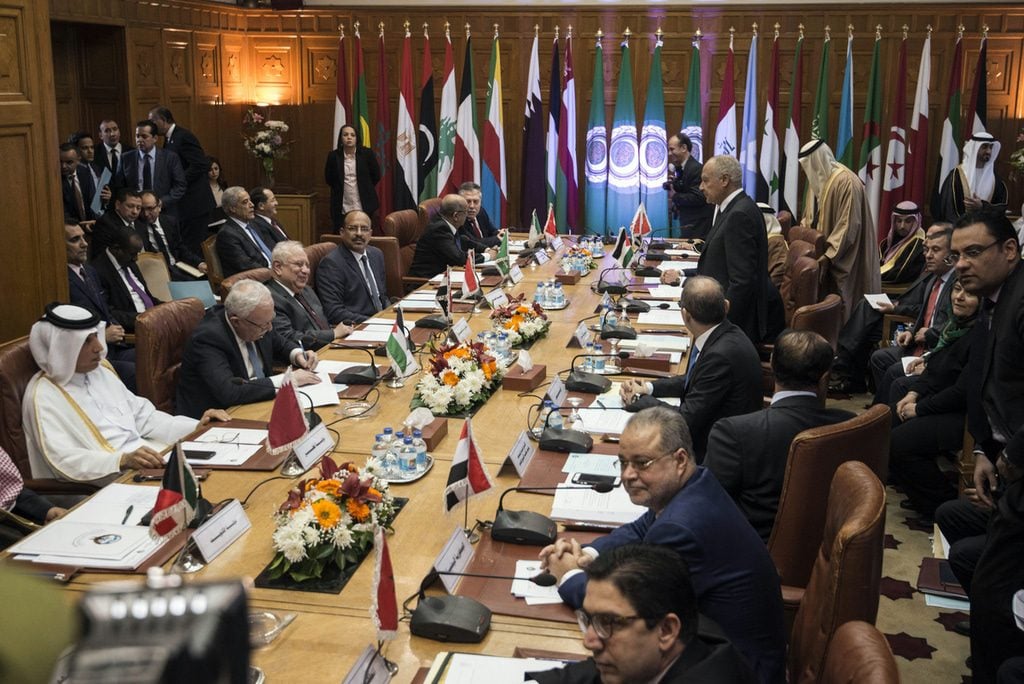
Introduction
Based on the Alexandria Protocol of 1944, the League of Arab States – commonly referred to as the Arab League – was founded in Cairo on 22 March 1945. In its charter, the founding members of the Arab League (Egypt, Syria, Transjordan, Iraq, Saudi Arabia, Lebanon, and Yemen) stated that the purpose of the League is ‘to draw closer the relations between member States and co-ordinate their political activities with the aim of realizing a close collaboration between them, to safeguard their independence and sovereignty, and to consider in a general way the affairs and interests of the Arab countries’, seeking collaboration on matters of economics, communication, culture, nationality, social welfare, and health.
In the Treaty of Joint Defence and Economic Cooperation Between the States of the Arab League of 17 June 1950, signatories confirmed their desire ‘to settle their international disputes by peaceful means, whether such disputes concern relations among themselves or with other Powers’. They also agreed to collaborate in military affairs, committing members to treat acts of aggression towards any member state as an act against all.
The charter has a separate annex on the issue of Palestine. In 1964 the League established the Palestine Liberation Organization (PLO), whose charter states that ‘the liberation of Palestine, from an Arab viewpoint, is a national duty’.
Shortly after the 1967 June War, the League issued another resolution known as the Khartoum Declaration, often remembered for its three ‘No’s’: ‘No peace with Israel, No recognition of Israel, No negotiations with it’.
Despite objections by Jordan, in 1974 the League recognized the PLO as the sole, legitimate representative of the Palestinian people.
Notwithstanding the Khartoum Declaration two founding members of League later signed peace treaties with Israel – Egypt in 1979 and Jordan in 1994. In retaliation for this unilateral step Egypt’s membership of the League was suspended and its headquarters transferred from Cairo to Tunis (only to return to Cairo in 1990).
The Arab League headquarters have a permanent General Secretariat and a Secretary General – a position traditionally appointed to an Egyptian (currently Nabil Elaraby). The League schedules sessions to meet biannually, or at the request of two members in extraordinary circumstances. It has 22 members (21 at the moment as Syria’s membership is currently suspended).

